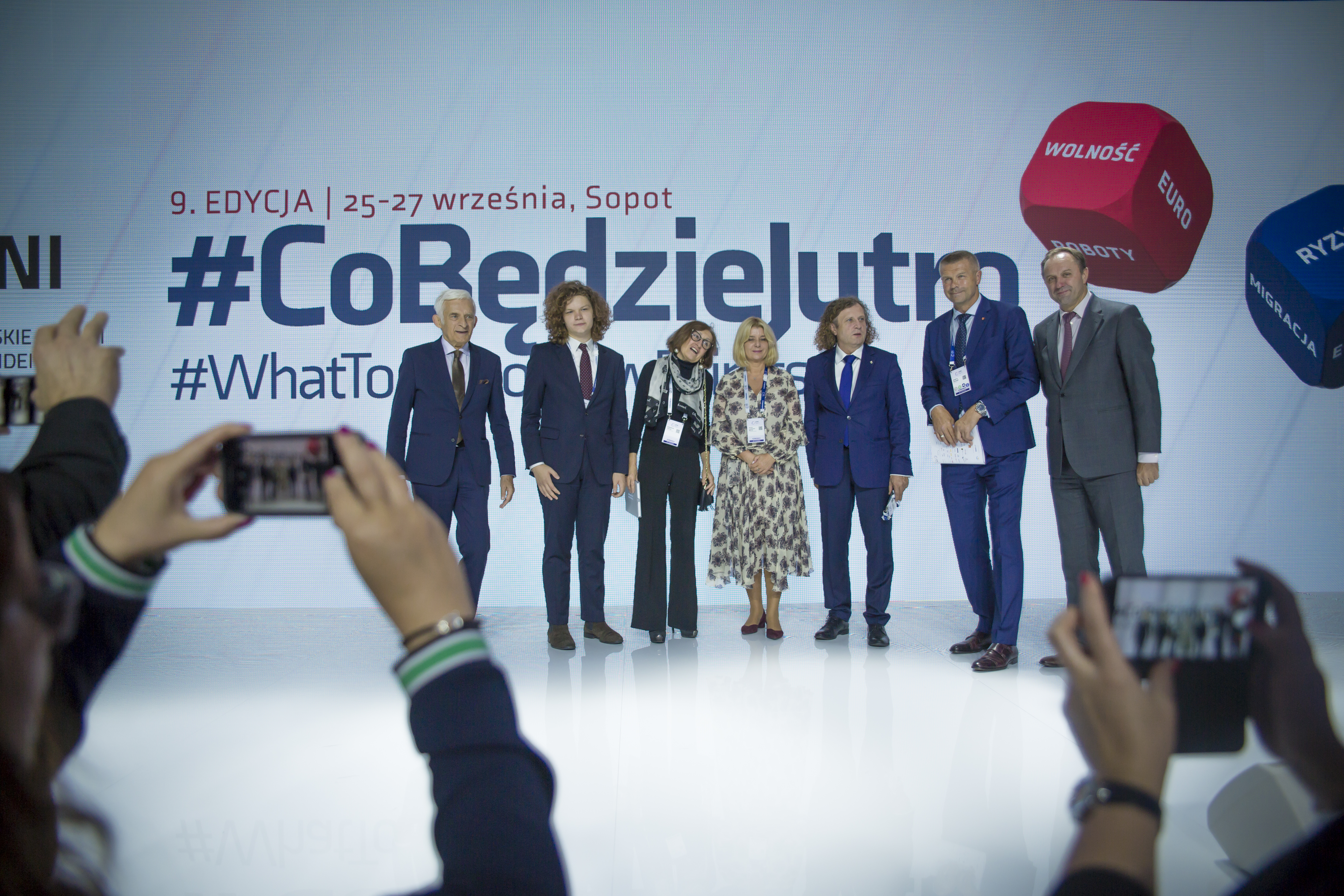The ninth edition of European Forum for New Ideas reached its conclusion. Over 1200 people caring about #WhatTommorowBrings joined us during over 80 panels, workshops, Night Owl meetings and Bays of Dialogue discussions… EFNI 2019 hosted 130 journalists from 70 publications and the #EFNI2019 hashtag peaked in top 5 trending Twitter topics.
In “EFNI” the most important letter is the „N”, those “New” Ideas – that’s what makes this conference stand out. We aren’t afraid to talk about the challenges we will face in five, ten, twenty, thirty years: ecology, artificial intelligence, the impact of technology on democracy… The “New” ideas are our trademark” – said Maciej Witucki, President of the Polish Confederation Lewiatan, organizer of the event.
EFNI 2019 was titled #WhatTommorowBrings and divided into three thematical blocks: society and Europe, economy and the future of market, technology and the future of jobs. Each topic was tackled during dedicated panels including: “Europe after the elections”, “How to feed the world”, “Big Data revolution”, “Who benefits from disinformation” and “What’s next after #MeToo and #PayMeToo? On the road to diversity”.
We need more equality both in politics and in business. Multiple experiences and points of view help creating innovative solutions – highlighted Henryka Bochniarz, Chairwoman of the General Board of Polish Confederation Lewiatan.
What Europe?
United and strong – agreed the panelist during the discussion “Europe after the elections Multiple speeds and different directions”. The plenary session was hosted by Jerzy Buzek, and former prime ministers, and presidents of other countries took part as well including: Mikulas Dziurinda, Petro Poroshenko, Alojz Peterle and Kondrad Szymański, secretary of state in the Polish Ministry of Foreign Affairs. They all highlighted that Europe has to move forward, develop the common market and be quick about cutting the red tape and solve any attempts at protectionism.
The common market isn’t enough to boost the competitiveness of European economy. The EU’s weakness is its dispersed capital. Our competitiveness depends on the priorities we set and the climate policy – summed up Elżbieta Bieńkowska, European Commissioner for Internal Market, Industry, Entrepreneurship and SMEs.
Participants of EFNI 2019 shared their vision of the future not only during the discussion panels, but also whilst creating a “thought map” depicting the direction we should take. In their view, Europe should be effective and responsible, democracy – mature and aware, market – logical and progressive.
And the world?
Shada Islam, Director of Europe and Geopolitics at Friends of Europe, made clear during her speech at the opening of the Forum that unpredictability of the world made it a very confusing place. The main points of discussion come up as the first letters of the alphabet: A as “America first”, B – “Brexit”, C – “China” (but also “climate change”) and D – “Democracy” which is, as she stated, threatened. Many important players attack its fundaments – independent counts, free media, women, minorities. E is for „election”, F – „foreigners” and G – „Globalization”. And here, in Sopot, someone asked me to add another letter. H for „hope”. It comes from the meetings like this as we are now more than ever open to talks about Europe because we realized how crucial it is for our values and interests – she added.
Sopot Declaration
EFNI was concluded with Sopot Declaration accepted by all participants and read by Henryka Bochniarz, Jerzy Buzek and Maciej Witucki and the closing gala. The Declaration states that EU is the second strongest economy of the world, one of its biggest markets and a leader in terms of democratic rules, human rights, working standards, quality and availability of services, fairness in income share, fighting poverty and environmental protection. This means that we have to face the modern challenges in all these sectors.
During the closing gala Michał Kiwerski from Youth Climate Strikes reminded us: The topic of climate crisis can’t be a part of ideological disputes – we have to be united when facing it he told the participants. He also highlighted the importance of media in rising awareness related to the dangers of the climate crisis.
